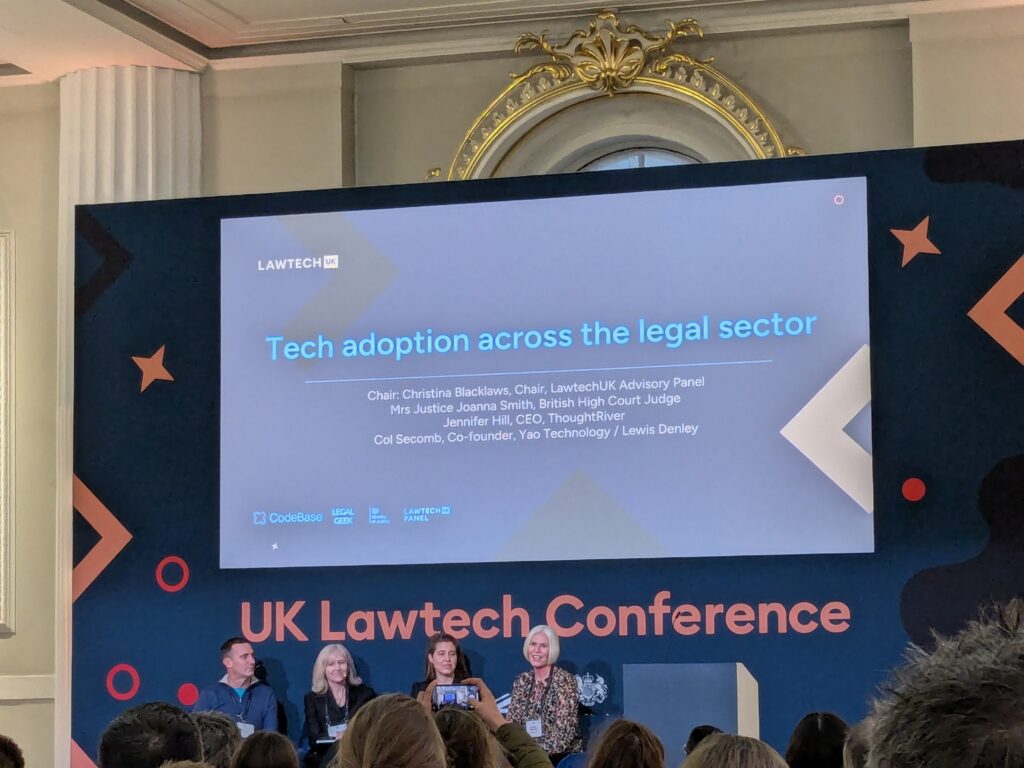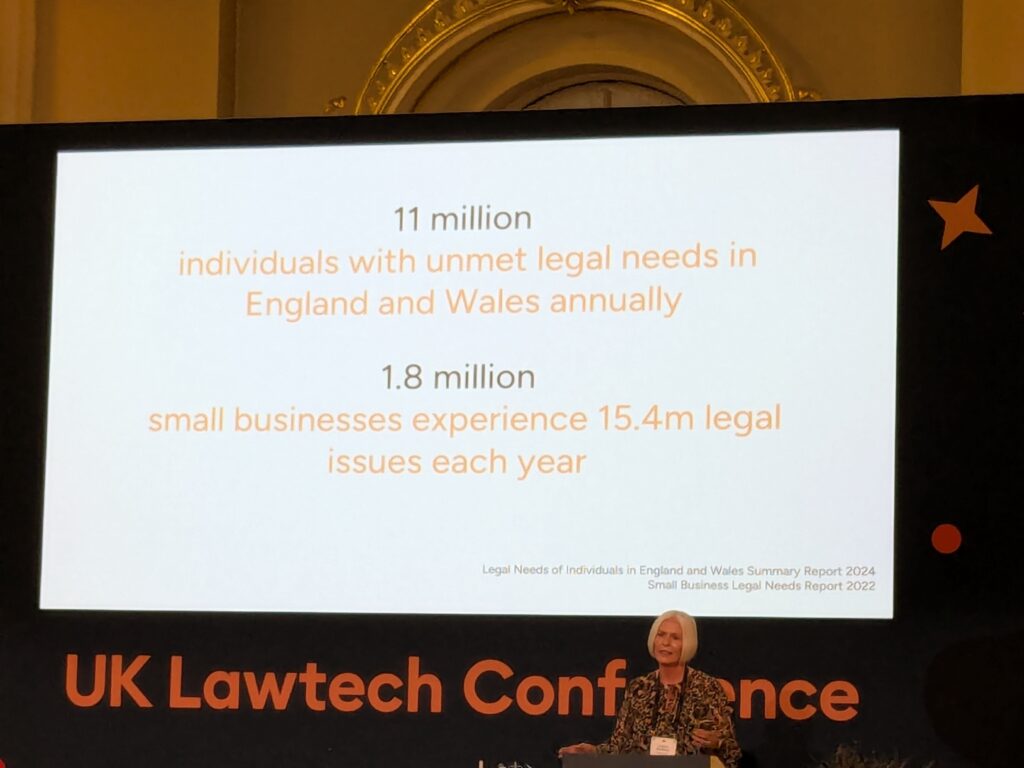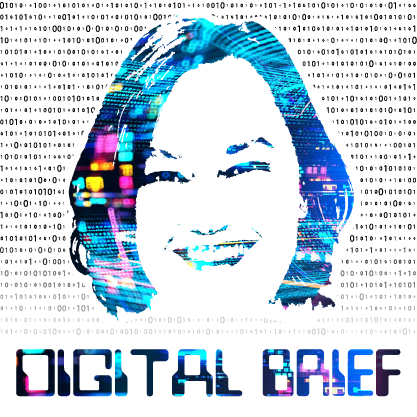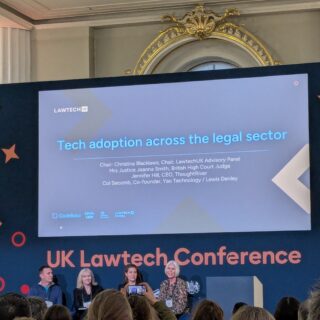In this second installment of Digital Brief, Danon Pritchard hits us with the highlights from an important new conference in the legal tech calendar.
Ever wondered what happens when the worlds of law and technology collide? A little while ago I had the chance to attend the first LawtechUK Annual Conference, in the swanky surroundings of the home of the Lord Mayor of London, Mansion House (you can see the venue and hear from some of the speakers in this 1 minute intro video below).
The varied range of speakers included members of LawtechUK’s illustrious advisory panel, as well as representatives from the Ministry of Justice, private practice law firms, in-house legal, lawtech organisations and the judiciary. I’m keen to share the highlights with you – if you’re curious about how tech is reshaping the legal profession, read on!
What’s LawtechUK?
LawtechUK is a Ministry of Justice initiative driving digital transformation in the legal sector. They’re essentially bridging the gap between traditional legal practice and new technologies. You can check out their mission statement on their website.
The Legal Tech Revolution

The Master of the Rolls, Sir Geoffrey Vos, opened the conference by emphasizing how AI is transforming UK law. His message was clear: lawyers should embrace AI to improve services and reduce costs for clients.
One of the many thought-provoking keynotes was styled around a (fictional!) break up text sent by a bank client to its law firm which started ‘We need to talk’. It was suggested that some law firms were stuck in the past, tied to the concept of the ‘billable hour’ which can discourage innovation and reward inefficiency (there were some audible gasps in the room at this point!). The breakup text continued…’We’ve met someone else’, followed by a discussion around the rise of new ALSP’s (Alternative Legal Service Providers). The overall message was that what the in-house legal client really wanted was not to break up completely with their law firm, but to have a new kind of relationship.
Tech Showcase
The conference showcased a range of new legal tech products, many created by startups led by former lawyers who knew exactly which problems needed solving. These included:
- Document automation tools
- Access to justice applications
- Due diligence tools
- Consumer lawtech applications
AI: Handle with Care
In a refreshingly honest discussion, an AI specialist described the legal sector as “shades of gray with footnotes” which from their technical perspective was said to make AI evaluation particularly challenging. While AI excels at identifying clear right and wrong, it can struggle with nuance. The consensus? Lawyers should not blindly trust AI and should always maintain an element of human oversight.
The Digital Divide
An afternoon panel highlighted concerns that smaller law firms might get left behind due to the currently high costs of adopting new tech. The judiciary is also grappling with resource constraints while trying to modernize.
What This Means for Lawyers and Law Students
Whatever stage of the law journey you are at, this conference provided plenty of food for thought:

- Technology is clearly reshaping legal roles, but new lawyers generally positively embrace tech
- Human skills like nuance, judgment, and empathy remain not only crucial but of increasing importance
- Lacking tech knowledge will increasingly limit your career prospects
- AI might help to make junior lawyers’ jobs more interesting by automating repetitive tasks
The Business of Legal Tech & Future Careers
The UK lawtech market is thriving, with £1.4 billion in lawtech-related M&A activity reported in 2024. For the latest updates, see the LawtechUK ecosystem tracker and LawtechUK’s newsletter, which you can sign up for online.

If you’re interested in legal tech careers, the LawtechUK website is an excellent resource for staying up to date with this rapidly evolving field. The legal profession is transforming, but by combining traditional legal expertise with tech knowledge, you’ll be well-positioned to thrive in this changing landscape.
Many thanks to Danon Pritchard, Director of Digital Literacies at The City Law School. Danon’s series Digital Brief seeks to keep us up to date on the fast-moving world of legal tech, via event reviews, topical commentary and resource explainers.

